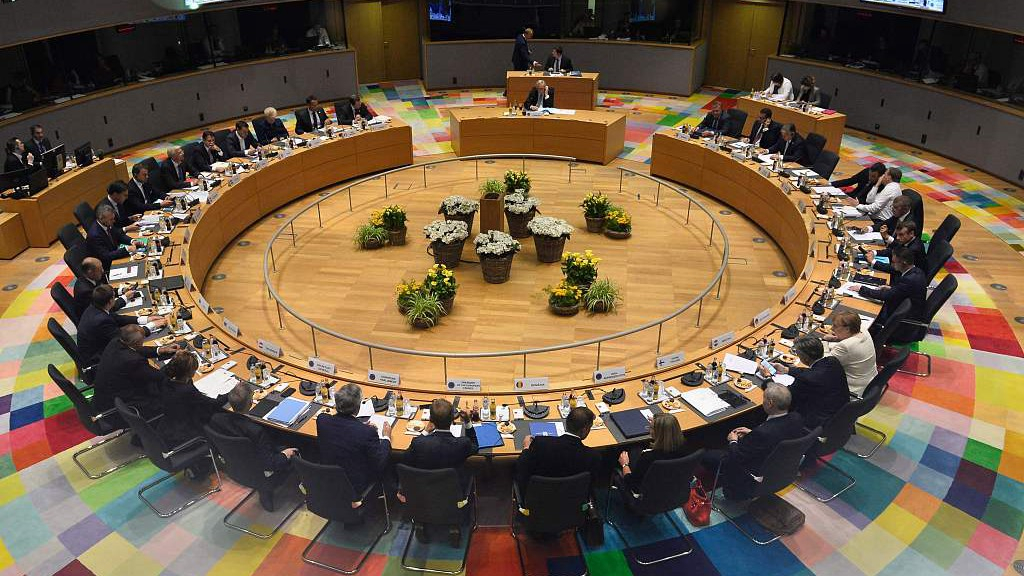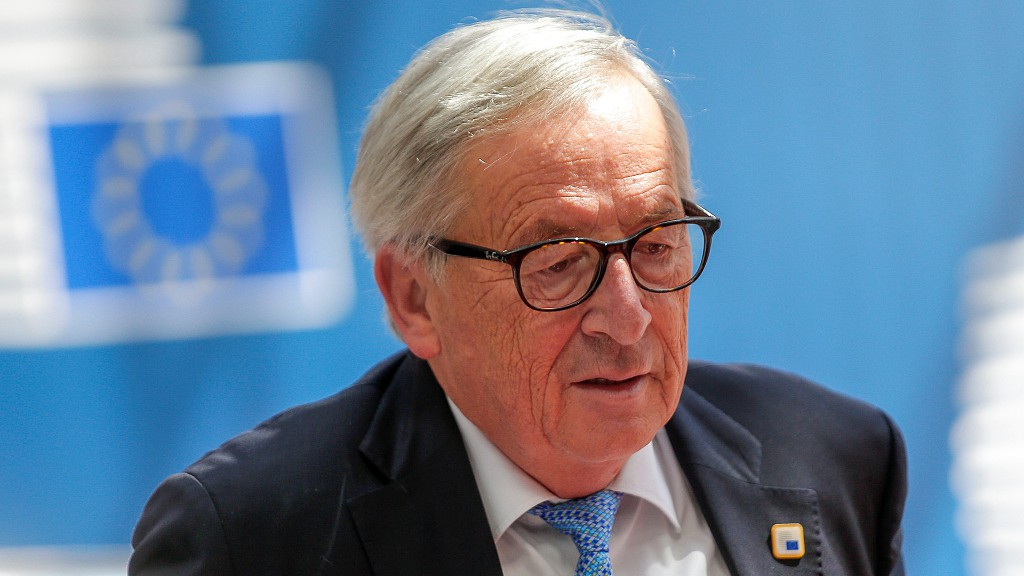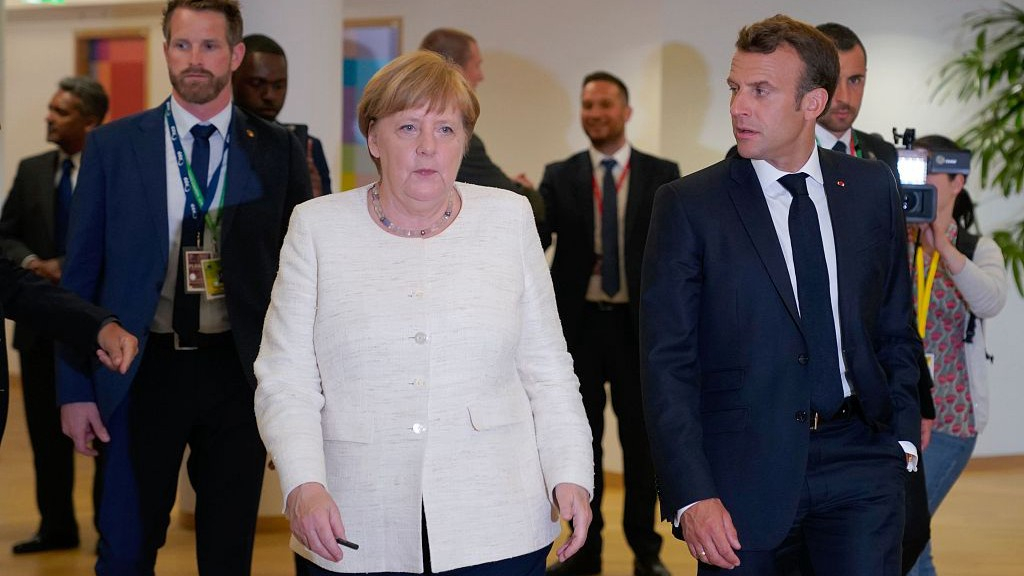

European Union leaders attend a EU summit in Brussels, Belgium, June 20, 2019. /VCG Photo
EU leaders will hold a crisis summit on June 30 to decide on names for the bloc's top jobs after lengthy talks in Brussels failed to produce an accord, EU Council president Donald Tusk said.
"The European Council has had a full discussion of nominations," he said. "There was no majority on any candidate," he added of the multiple positions being discussed.
"The European Council agreed that there has to be a package reflecting the diversity of the EU. We will meet again on June 30."
The 28 heads of government had met for dinner after Brussels' main political factions refused to fall into line behind a single choice to head the European Commission.

European Commission President Jean-Claude Juncker attends the European Union leaders summit in Brussels, Belgium, June 20, 2019. /VCG Photo
Fail to set 2050 target of zero net carbon emissions
EU leaders failed to set a target of zero net greenhouse gas emissions by 2050, after fierce resistance from Poland, the Czech Republic and Hungary.
Nonetheless, they added, a large majority of the 28 leaders endorsed the mid-century target under growing public and political pressure to step up the fight against climate change.
France and Germany had led efforts for the 28-member EU to lead by example in setting an ambitious new climate goal ahead of U.N. climate talks in September that U.S. President Donald Trump has abandoned.
But unanimity was needed, and last-ditch persuasion efforts in what diplomats described as "impassioned" talks that dragged on for four hours failed to ease fears among the central and eastern European states, including Estonia, that it would hurt economies due to their dependency on nuclear power and coal.

Germany's Chancellor Angela Merkel and France's President Emmanuel Macron walk prior to a meeting with the European Council President on the sidelines of an European Council Summit at The Europa Building in Brussels, June 20, 2019. /VCG Photo
Agree on sanctions and sanction threat
European Union leaders agreed Thursday to prolong until the end of January 2020 economic sanctions against Russia over the turmoil in Ukraine.
"Russia sanctions unanimously extended for another six months because of a lack of Minsk Agreements implementation," said the spokesman, Preben Aman, referring to a stalled peace accord for east Ukraine.
The EU's economic sanctions against Moscow over Ukraine include curbs on Russian energy, defense and financial sectors and are currently in place until the end of July. The formal roll-over will take place in the coming days.
The EU on Thursday stepped up its rhetoric over Turkey's drilling for oil and gas off Cyprus, raising the threat of sanctions if Ankara refuses to back down.
The discovery of huge gas reserves in the eastern Mediterranean has fueled a race to tap underwater resources and triggered a dispute between Turkey and EU member Cyprus, which also plans to ramp up its exploratory activities in the area.
As Turkey sent a new ship to search for hydrocarbons off the coast of EU member Cyprus, the bloc repeated its condemnation of Ankara's "illegal drilling activities."
The 28 EU leaders meeting at a summit in Brussels said they "deplored that Turkey has not yet responded to the EU's repeated calls to cease such activities."
"The European Council endorses the invitation to the Commission and the EEAS (the EU's foreign service) to submit options for appropriate measures without delay, including targeted measures," the leaders said.
Ankara says its actions abide by international law and that it is drilling inside its continental shelf.
(With input from AFP, Reuters)

Copyright © 2018 CGTN. Beijing ICP prepared NO.16065310-3
Copyright © 2018 CGTN. Beijing ICP prepared NO.16065310-3